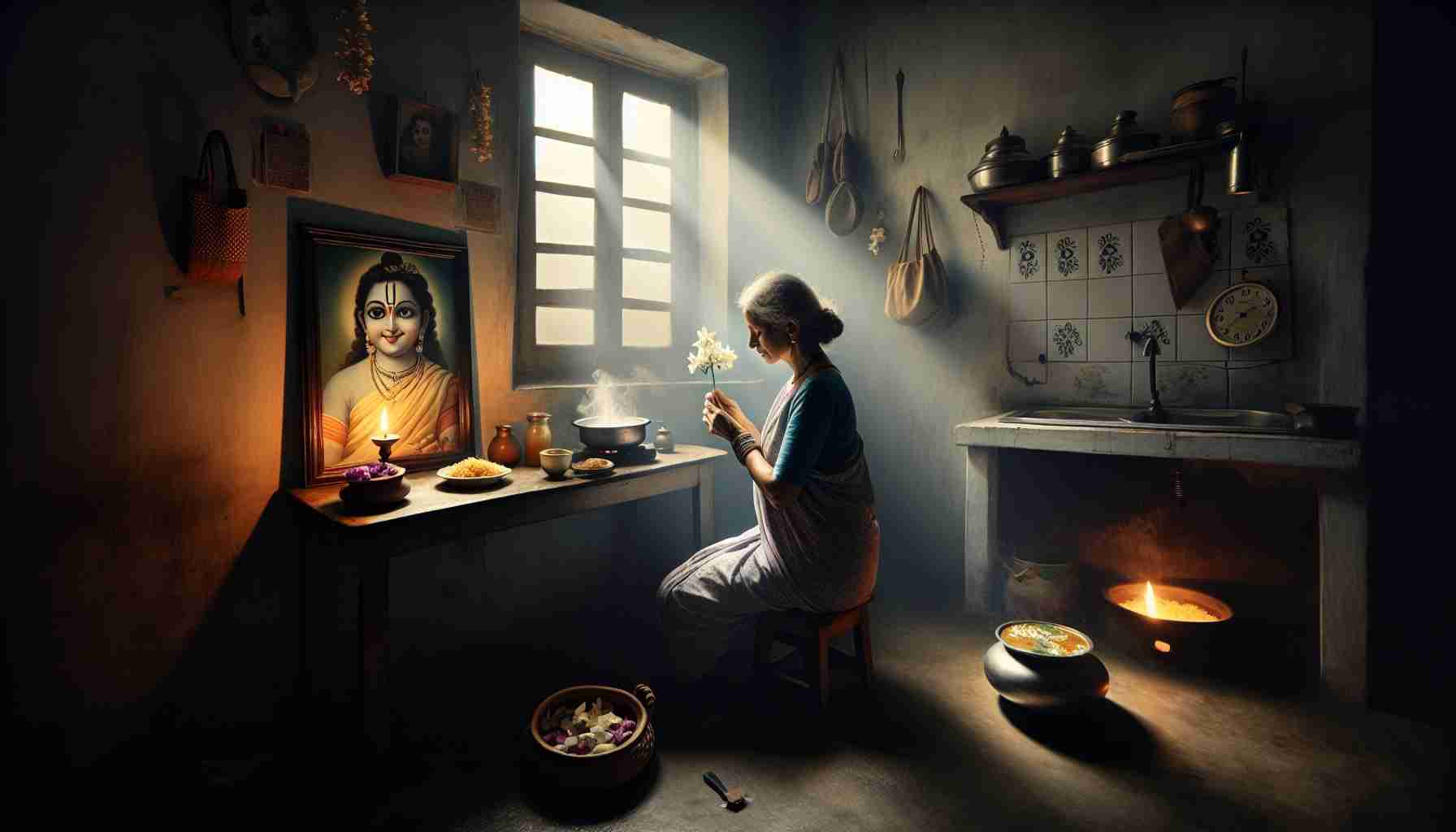

I am Meera, a homemaker from Madurai, and my kitchen clock ticks louder than it should.
Each morning, before my husband finishes chanting his Gayatri mantra, I’ve already made tea, boiled rice, packed lunch, and begun worrying about tuition fees, my mother-in-law’s health, or the cost of onions. My hands kept moving, but my mind… always in tomorrow. Will our daughter get into a good college? Will the business survive another month?
I didn’t notice how tightly my jaw clenched until my seven-year-old, Rishi, touched my elbow one evening. I was scraping burnt dal from the bottom of a pot.
“Amma,” he said, holding out a wilted jasmine he had picked from outside. “She’s not perfect, but she smells nice.”
I looked at the little flower. Its petals were browning, crumpled. I almost brushed it away. I wanted silence, not sentiment. But something stopped me.
“She smells nice,” he repeated, placing it into my palm. “Now is still good, Amma.”
Somewhere behind his words, I heard a flicker of truth—like when night lamps glimmer after power cuts. I remembered a verse I once read in the Bhagavad Gita, when I was a teenager and still believed my prayers reached the Divine.
"He who is content with whatever comes by chance, who has passed beyond dualities, is free from envy, and steady in success or failure – he is not bound, even by action." (Bhagavad Gita 4.22)
I used to chant it during storms, both in weather and life.
Now I had become the storm.
That night, after everyone slept, I lit a single diya—an oil lamp—before the small picture of Krishna that hung in our hallway. Krishna, the playful lord with the flute, who stood always smiling, even in the middle of war. Why? Because His heart remained in the moment, not in the fear of what was next.
I didn’t say a long prayer. I just sat. The fan creaked above me. The jasmine still rested in my palm.
I remembered how Sita, in the Ramayana, did not demand resolution while in Lanka. She waited with strength, performing her daily prayers under an ashoka tree. She lived each day as it came, even in captivity.
That was devotion—not asking for escape, but being fully present inside faith.
I’ve started noticing little things now. The clinking of my daughter's bangles at the door. The sound of sambar boiling. I still worry, yes. But I return to my breath, as the Upanishads say: “As the spokes are held together in the hub and the rim, so all is held together in the Self.”
I am still learning. But now, I hold my son's flower every morning during prayer.
Even if she’s not perfect, she smells nice.
And now… is still good.
I am Meera, a homemaker from Madurai, and my kitchen clock ticks louder than it should.
Each morning, before my husband finishes chanting his Gayatri mantra, I’ve already made tea, boiled rice, packed lunch, and begun worrying about tuition fees, my mother-in-law’s health, or the cost of onions. My hands kept moving, but my mind… always in tomorrow. Will our daughter get into a good college? Will the business survive another month?
I didn’t notice how tightly my jaw clenched until my seven-year-old, Rishi, touched my elbow one evening. I was scraping burnt dal from the bottom of a pot.
“Amma,” he said, holding out a wilted jasmine he had picked from outside. “She’s not perfect, but she smells nice.”
I looked at the little flower. Its petals were browning, crumpled. I almost brushed it away. I wanted silence, not sentiment. But something stopped me.
“She smells nice,” he repeated, placing it into my palm. “Now is still good, Amma.”
Somewhere behind his words, I heard a flicker of truth—like when night lamps glimmer after power cuts. I remembered a verse I once read in the Bhagavad Gita, when I was a teenager and still believed my prayers reached the Divine.
"He who is content with whatever comes by chance, who has passed beyond dualities, is free from envy, and steady in success or failure – he is not bound, even by action." (Bhagavad Gita 4.22)
I used to chant it during storms, both in weather and life.
Now I had become the storm.
That night, after everyone slept, I lit a single diya—an oil lamp—before the small picture of Krishna that hung in our hallway. Krishna, the playful lord with the flute, who stood always smiling, even in the middle of war. Why? Because His heart remained in the moment, not in the fear of what was next.
I didn’t say a long prayer. I just sat. The fan creaked above me. The jasmine still rested in my palm.
I remembered how Sita, in the Ramayana, did not demand resolution while in Lanka. She waited with strength, performing her daily prayers under an ashoka tree. She lived each day as it came, even in captivity.
That was devotion—not asking for escape, but being fully present inside faith.
I’ve started noticing little things now. The clinking of my daughter's bangles at the door. The sound of sambar boiling. I still worry, yes. But I return to my breath, as the Upanishads say: “As the spokes are held together in the hub and the rim, so all is held together in the Self.”
I am still learning. But now, I hold my son's flower every morning during prayer.
Even if she’s not perfect, she smells nice.
And now… is still good.